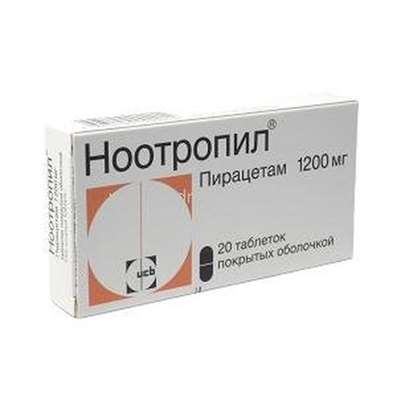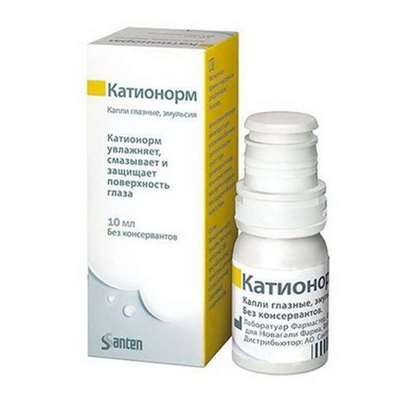Stability and plasticity of memory
22 Oct 2016
Neuroscientist Dr. Doping tells how to improve memory, mechanisms of forgetting and the phenomenon of reconsolidation.
The question of stability and plasticity of memory concerns each of us. Each of us sometimes forget something, it is the plasticity of memory: here she was, and it is not. And each of us something to remember for decades, it is well known, and found that this is long-term memory. It now will not go on short-term memory, namely the long-term memory, which is stored not days and even years. However, although it is known that memory is stored years, sometimes for some reason it disappears, something happens with it.
It is well known that memory is essentially a mechanism of adaptation of each of us, humans and animals, to the external environment. In fact, if we do not remember what happened to us quite recently, we're just going to live effectively. Memory - this adaptation mechanism for a long time. Problems here very much. Memory studies were conducted very intensively since the end of the XIX century, because it is one of the most interesting phenomena in the higher nervous activity of animals and man. Of course, each of us understands that animals also have memory. Perhaps not in such subtle ways as humans, but the memory too.
To improve memory one should buy nootropics: Phenotropil, Semax, Neuromidine and Noopept.
More recently, at the end of the last century, in the early 2000s, it was established that in recall, memory using the memory can be changed. Memory becomes plastic, it can be changed. It was quite unexpected discovery, because it was thought that memory is, as the unconditioned reflex. We breathe, we are able to talk, make sounds - it's all the same shape memory, which is manifested in individual development, when we grow up.
In adults it was found that, until we have something not recall this memory intact, and when we remember, there is a possibility to change it, the memory becomes plastic. This unusual property, but it is very useful to experimenters, because memory - this is the main mystery, which now remains in biology. It is not clear even how to approach questions about the decision that is memory, what are the mechanisms of its storage for years, decades. We remember not just any images, and specific names, numbers, phone numbers people can remember for decades, and so on
As it can be encoded? At the same time, I note that the amount of memory in humans is not limited by such computers today do not even foreseen, because they all have a limit, and the amount of human memory is limited, because it is arranged on a different principle, it is not as a computer. And these principles - this is the main puzzle that scientists are trying to solve.
This work is quite intensified in the last 10-15 years, due to the discovery of the phenomenon, which is called reconsolidation. Memory is consolidated when we learn something new, there is a period of consolidation, when the memory "summarize", figuratively speaking, it becomes non-plastic, and we can remember in a year or two, it goes to the long-term. If we use the long-term memory, we remember something, or is said to derive from the storage memory (I do not like this comparison, but it is used). It appears that while it may be changed.
And here arises the most fundamental question: how is it? It can be changed, it can be put out, in fact. Where, then, becomes of the saying, "Repetition - the mother of learning"? The more we repeat, the better seems to be remember for a long time. It seems that this sentence is not entirely true, although some within the right.
Here it is necessary to say that in fact (it is set quite accurately) memory - layered phenomenon: have any depth, the basics, the basic form of memory that can hardly even be modified, and they do not change. This includes processes such that we acquire in childhood, especially during the individual development of the child remembers some motor skills, they practically do not change, they are almost impossible to change. And you can change the memory, which is called associative, when we do something with something associate, some of our ideas about something, some kind of abstract and logical things. This memory seems, can be changed during use.
Memory can be traumatic. This is one of the clinical questions: Is it possible to extinguish a painful memory, which prevents a person or an animal to live? In reality today there is no safe pharmacological approaches. There are only a few methods, using which you can slightly weaken the post-traumatic, suppose the memory. In studies to date is set, the memory can be really new. There is even a concept of "induced memory": certain techniques can inspire a person, he remembers it, and after some time it will be absolutely sure that it is his memory. It is based on the phenomenon, on the phenomenon that, indeed, every time we have to remember something, we attract a lot of events. We remember the place, that is the situation, a number of factors, the existence of which we are not even aware of: light, temperature, some small details that are not reaching the level of consciousness, but they are somewhere stored in the same way as holographic image.
When we use the memory, the brain says. "Yes, that's for sure" The brain actually will measure the amount of information available to match the way that we have. When a match is big enough, he says: "Yes, we remember." It is the property of parametric of memory, on the fact that every event is linked in our minds with other events, with the situation, based, for example, the phenomenon of Deja vu.
For example, it was specifically with me, the first time being in Paris, I realized on the steps in front of the Paris Opera that exactly sure what was here, although I was the first time in his life came back. That this phenomenon for a long time I did not let go, because I was sure that all know. I turned to the right - just that same street that I appear to be. She was there. But this is based simply on the fact that the pieces I am learning French, looking at cards, watching movies. I saw it all in pieces. When it all merged together, I had a feeling that I have been here.
And memory itself necessarily generates this kind of linking, when we remember some specific event, we certainly pops up all around this event. If the event is isolated from the context, the memory can be changed, it can be different, it may change depending on the context. This is based a lot of techniques you can use to slightly change the memory or to explore what would happen, how it can be plasticized or completely erased.
The issue of stability and plasticity memory investigated now, of course, primarily in animals (these experiments can only animals) using the so-called protein synthesis blockers, that is known that any memory is stored using proteins. Accumulating any new proteins are embedded somewhere in the nervous system, and if we block protein synthesis, the new memory is formed, although the genetic apparatus works, it works, but the memory can not be formed.
If we recall some event or force the animal to remember for a very specific event on the background of the blockade of synthesis of new proteins, it turns out that the next day it also does not remember anything. Thus it is proved that the memory depends on the appearance of our nervous system in a very specific field of new proteins. The same approaches are based and to plasticize the memory, modify it. There are two reception. The first method - a very simple, with the help of which can cause amnesia, a powerful shock, electrocution, hit with a hammer on the head, the impact of any actual erase all memory that was right before the event. This everyone knows, is the phenomenon of amnesia. Amnesia can be quite long or short.
Frequently asked question about memory loss as a result of some events: accidents, illnesses. Sometimes it happens that people lose their memory. What it is? What can you do? Yes, indeed, such a thing can happen. In fact, it is the loss of co-ordination between the systems that keep our memory, loss of co-ordination between them in the brain. If it is restored, if the body is overcome and communications are restored, it will be a favorable outcome, and amnesia as it disappears. But all possible options, as you can imagine, it all depends on the condition of the body.
People often ask how to improve memory. First train. Memory - this is actually an internal organ, it is such a phenomenon as other physiological effects, it is a way to adapt, it is necessary to train. At any age, it is necessary to train the memory, it will be better. I do not know whether you need to modify the memory, if not with specific goals, but today directed pharmacologically change memory is impossible, because we can not be addressed in the right parts of the brain. It is possible to erase all memory of how the total amnesia.
In fact, to date, the issues that are faced by researchers in the field of memory research, very sharp. First of all, the known molecular memory storage mechanisms. There are only a few experiments, guesses, hypotheses.
Even more difficult systemic issues: there is a memory that seems almost not subject to change, there is a memory that is plasticized and has a memory that can endure the changes itself. It is shown that memory with the passage of time after the event, when we remember something, passes from one brain region to another, completely different mechanisms are included. All of these issues today are open, they are the essence of the fundamental research to be carried out at the moment.

 Cart
Cart





